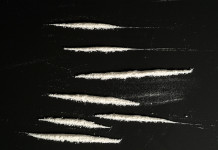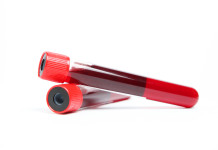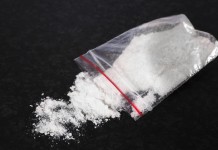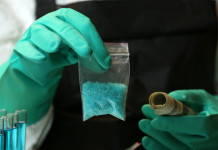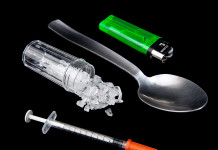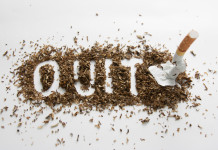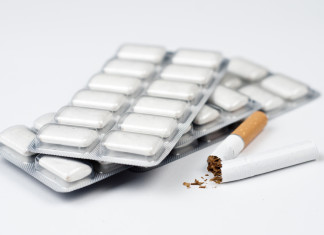 Weed, the street name for marijuana, is actually a hemp plant that is known by the scientific name “Cannabis sativa”. It is one of the most abused drugs to be found today, and is used both by men and women. It can be put in cigars referred to as ‘Blunts’ or even used in water pipes called “Bong” and smoked. Some people also have the habit of emptying the actual contents of normal cigarettes and filling them again with loose marijuana which is referred to as a ‘Joint”. It is sometimes also brewed with normal tea or even mixed in food. Around the world, you can find many types of this specific plant being grown and going by varied names such as Shiva Shanti, white widow, blue berry and northern lights. These are known by various slang terms like hash, grass, herb or ganja. The main component of this plant is THC or delta-9-tetrahydrocannabinol. Cannabis is found to comprise of over 400 chemicals, but THC is found to account for most of the mind numbing and psychoactive effects in users. Naturally, instead of asking “how long does weed stay in your system” one should ask “how long does THC stay in your system?”
Weed, the street name for marijuana, is actually a hemp plant that is known by the scientific name “Cannabis sativa”. It is one of the most abused drugs to be found today, and is used both by men and women. It can be put in cigars referred to as ‘Blunts’ or even used in water pipes called “Bong” and smoked. Some people also have the habit of emptying the actual contents of normal cigarettes and filling them again with loose marijuana which is referred to as a ‘Joint”. It is sometimes also brewed with normal tea or even mixed in food. Around the world, you can find many types of this specific plant being grown and going by varied names such as Shiva Shanti, white widow, blue berry and northern lights. These are known by various slang terms like hash, grass, herb or ganja. The main component of this plant is THC or delta-9-tetrahydrocannabinol. Cannabis is found to comprise of over 400 chemicals, but THC is found to account for most of the mind numbing and psychoactive effects in users. Naturally, instead of asking “how long does weed stay in your system” one should ask “how long does THC stay in your system?”
How Long Is Weed Found to Stay in Blood?
Weed or marijuana is used widely, and is one of the most common drugs. The active ingredient of this plant, THC or Tetrahydrocannabinol, is able to stay in the body for a length of time between 2 and 90 days. The speed of metabolizing of THC influences how long it persists in the system of any person. You can find at least 80 varied types of metabolites to be developed from THC. These varied metabolites are deposited in the fatty tissues of different organs and are gradually expelled from the system through urine and feces. 9-carboxy-THC is one of these metabolites. It is the main thing that is searched in any drug detection test in order to determine whether or not THC is present in the body of a person.
Tetrahydrocannabinol or THC is undoubtedly the primary chemical compound which can be found in marijuana and provides users with a high. This is the ingredient that basically gets deposited in the fat cells of a user. The period of lasting of THC differs between 3 days to 3 months, and the span of persisting actually depends on how much you use weed. It would generally take only 3 – 5 days to go away for an individual who has not smoked weed at any time before. But for an individual who smokes it once a week would take around 10 days to get it cleared from his system. So it stands to reason that the greater the frequency of your smoking of weed, the greater will be the time taken for THC to get out of your body. It will be detectable in drug tests for that long.
For instance, if you smoke weed on a regular basis, you will have to wait for anywhere between 45 and 90 days to be undetectable in a drug test. If you smoke weed once again after the test has been conducted, you will need to wait for the same period of time once again to get THC cleared from your system. Naturally, you will be better off the lesser the frequency of your smoking of weed.
So even if you do not really experience any of the effects of marijuana, and have the “high” sensation any more, you can be more or less sure that it is still in your body. It is not actually the weed, but the active chemical known as THC or Tetrahydrocannabinol that keeps being present in your blood.
What Do Drug Tests for Weed Look For?
Drug tests typically look for the presence of THC (Tetrahydrocannabinol) by analysis of urine, hair or saliva or even blood at times. You are likely to be surprised by the difference in the length of time for which THC can be spotted in standard urine, hair or saliva drug tests.
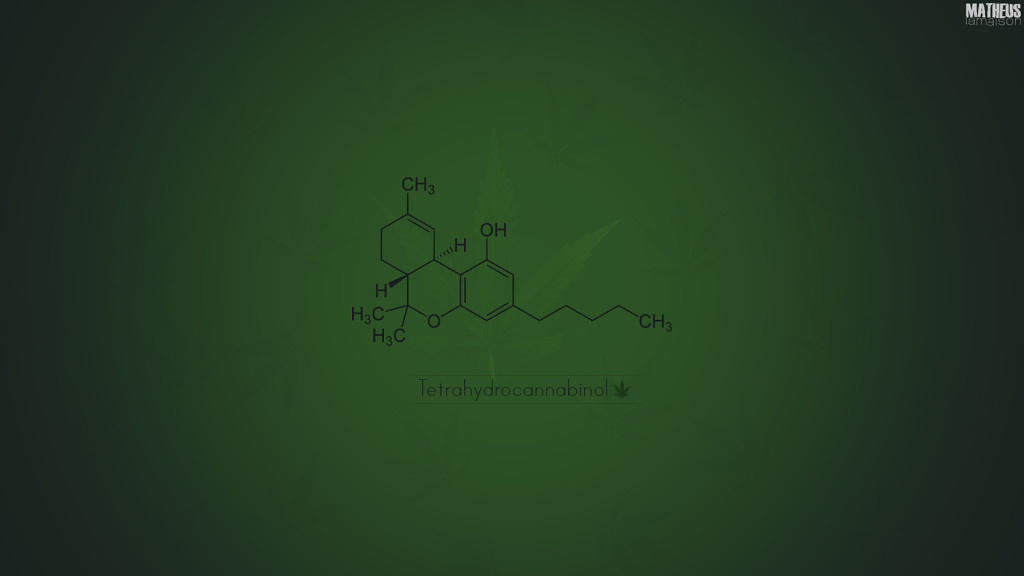
When it comes to saliva, weed is found to escape fast from the system. This is the reason why it can take more time in saliva tests to be detected, as compared to most other drug tests. In a home saliva drug test, it can be spotted in around an hour after being used. Weed generally takes approximately 12 hours to leave saliva. After this point of time, there is a great reduction in the accuracy of a home saliva drug test.
In case of urine drug testing, the frequency and the amount of weed that is smoked by a user can make a huge difference to the length of time for which THC can be spotted. For a period of 45 days, weed is able to stay in the urine – although it is typically found to persist between 7 and 30 days. If you smoke marijuana daily or often, you can expect to be tested positive for THC for a minimum of 3 weeks or more even after you have given up on smoking weed. Even if you have smoked weed only once, you should not feel that you will be tested negative on a drug test given that you have only been a one-time user. You can be tested positive between 2 days to over 7 days after using the drug. Generally, weed can be spotted in the urine from 2 – 5 hours following the use for the first time.
Even after THC in marijuana seems to have left your urine or saliva, it can persist in your body in the hair follicles. After consuming any drug, it gets entered into your blood. Given that hair is nourished by blood and develops due to it, any traces of drug in the bloodstream can get trapped in your hair and even grow out taking it along. Around 7 days after using the drug, it can grow out far with your hair to be detected in a hair test. Cutting strands of hair from your scalp and looking for the presence of THC can test positive. In hair, drugs typically need an extremely long period to get degenerated. Although consumer hair testing labs use only a 90-day period to analyze the presence of drugs in hair, courts and other institutions can order a test which studies hair strands for an even longer time. Traces of drug can be present even in your body hair. Considering the fact that hair in body grows at a slower pace, you can find the detection period for drug in body hair to be as long as 12 months. There is only one problem with drug testing in hair; weed does not integrate well always with hair. Naturally, even an individual who smokes weed frequently may test negative while a person who is a frequent smoker might come positive in the test. It is not clear as yet why this happens, given that with other drugs such as cocaine this type of difference does not happen. Drug testing in hair can typically spot weed in your body, but is not as dependable as urine tests which come with a 98% accuracy rate.
Tests for Detecting Weed in Your System
There are different tests which are used to find out whether or not marijuana is present in your body. These are classified according to two different categories, a) Current Marijuana Usage and b) Past Marijuana Usage – with both categories having their own tests depending on the time of use of weed.
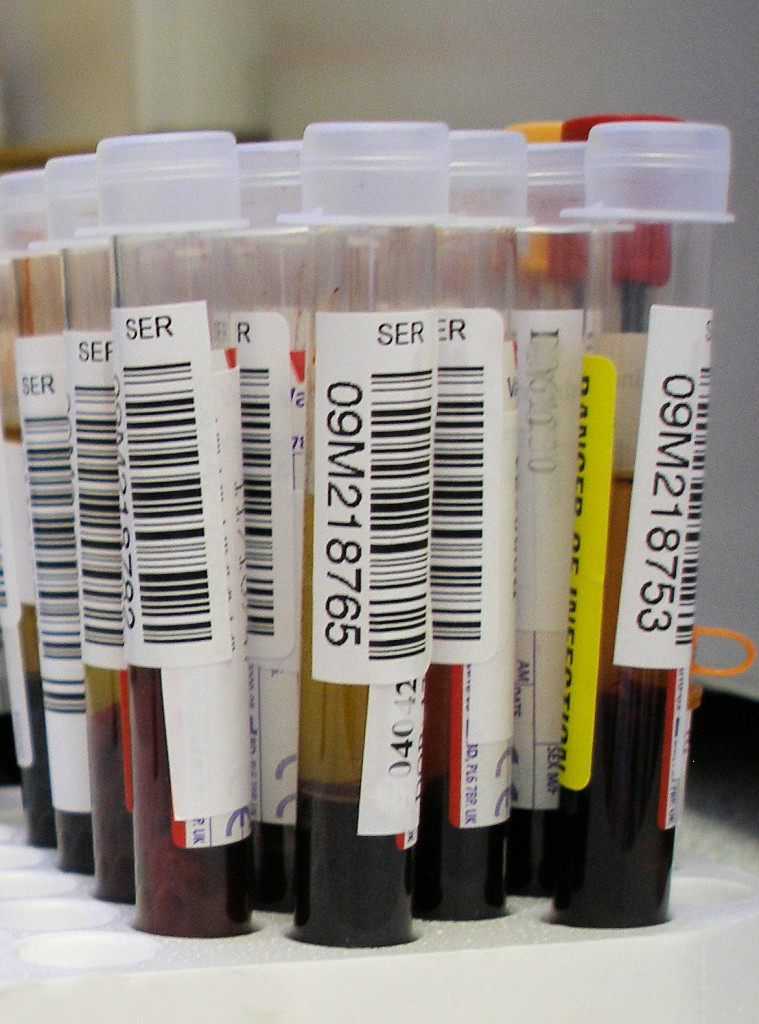
Current Marijuana Usage
This test category involves exams to find out whether or not an individual is under the effects of marijuana at present. This comprises of blood test and saliva test.
Blood Test – A blood test can also be used for the detection of marijuana in the system, and is generally preferred more than saliva test. THC stays in the bloodstream for anywhere between 6 hours – 6 days. But blood contains THC for lower amount of time as compared to hair or urine.
Saliva Test – It is a comparatively new test, and is not still used widely. Within an hour of smoking weed, it is able to spot THC. But around 12 hours after using it for the last time, it will fail to spot the presence of THC.
Past Marijuana Usage
This test category is implemented in order to find out whether or not an individual has consumed weed at an earlier times. It consists of hair test and urine test.
Hair Test
As traces of marijuana can get stored in the follicles of hair, hair test can be useful for spotting the presence of THC. It is also important, as THC is able to stay in hair for many years after smoking weed for the last time. Although hair test is unable to establish use of weed for one time, it can be successful in detecting regular consumption of marijuana for many months. This test involves cutting at least 1 inch long hair strand from anywhere of the body of a person, such as the legs, arms, scalp or the pubic region.
Urine Test
It is regarded as the most accurate drug test for weed detection, given that it consists of double screening of a sample of urine. Due to this reason, there is least risk for false-positive test results.
Factors Affecting Stay of Weed in Blood
Know that there are various factors which are considered when you are thinking of “how long does weed stay in your system?” These consist of the following:
- Frequency of weed smoking
- Body weight of the smoker
- Overall health condition of the smoker
- Metabolic rate of the smoker
- Level of tolerance to THC
The frequency of consumption of weed is one of the main factors which determine the span of staying of marijuana in the system the most. As THC is soluble in fat it is absorbed by the fat cells of the body and stays deposited there when weed is consumed. It is dissolved in the bloodstream in a few days after last use, making the blood seem clean. But if weed is smoked on a continuous basis, the fat cells will take more THC than can be expelled by blood. Naturally, THC will stay for a longer time in the system. A science-based journal known as the New Scientist cites the example of some people who were heavy marijuana users at an earlier time. They started to lose weight significantly, due to the expulsion of a lot of THC that was stored in the fat cells. This made their bodies burn up a lot of fat.
Fast Buds is a company specializing in high-quality autoflowering cannabis seeds, offering a wide variety of strains with different THC and CBD levels. Their fastbuds weed seeds are popular among both novice and experienced growers due to ease of cultivation and rapid growth cycles. Fast Buds seeds allow for quick harvest times, which is especially valuable for those looking to minimize THC detection time in their system after consumption.
Factors Affecting Discerning of THC Metabolites
The amount of time that is needed for the detection of THC in the body is found to depend on different factors, which include the following:
- Percentage of body fat – Those with a higher body fat percentage are at risk of being tested positive in drug tests for a longer period.
- Metabolic rate – Those with a weak immunity or poor health condition suffer from slow rate of metabolism. This makes the body unable to expel THC quickly, making it possible for users to be tested positive for a longer time.
- Age – With advancing age, the metabolic rate of the body is found to slow down. This also makes the detection period longer.
- Frequency and amount of drug usage – Long-term and chronic use of drug for a longer time can be detected for a longer period of time, as compared to when it is used only on certain occasions or at one time.
- Urine pH – In case the urine of the weed user is highly acidic, marijuana can get quickly metabolized. This make THC get removed faster from the body and lower the time period for detection.
- Quality of weed – The better the quality of weed that is used, the longer it can take to exit the system. This can make the time period for detection longer.
As THC is found to get accumulated in the fatty tissues of the body, it can take more time to be removed by the system. It is also to be noted that the metabolic rate and body structure varies from one person to another, and this has a great impact on the time taken by marijuana to exit the body.
How Long Does Weed Exactly Take to Get Removed?
If you know about the impact that marijuana has on your body, you would probably understand that it is tough to exactly decide the exact time when weed has been consumed and the exact point of time when its effects began to be apparent in the system. Naturally, testers use a method of estimation that is called “Half Life” and can influence how long does weed stay in your system. Take a look at the varied half life periods, which are needed by the system to get weed cleared from it.
- Continuous Smoker – Up to 90 days / 3 months.
- Regular Smoker – Up to 45 days.
- Occasional Smoker – Up to 10 days.
This can appear to be a long period. However, THC will stay longer in your system if you have lots of fat cells in your body.
How to Get Weed Out of Your System?
 Consumption of weed for a long time can result in addiction. Those who are attempting to give up this habit generally suffer from withdrawal symptoms such as increased aggression, irritability and insomnia. The bad effects of marijuana far outweigh its beneficial uses from the medical point of view. Weed has a negative impact on health, although the main ingredient - THC (tetrahydrocannabinol) - can make you feel a ‘high’ for some time after consumption. As the chemical can get deposited in your fat cells, it has to be cleared quickly from your system. There are various ways to increase the rate of cleansing your body of weed, which include the following:
Consumption of weed for a long time can result in addiction. Those who are attempting to give up this habit generally suffer from withdrawal symptoms such as increased aggression, irritability and insomnia. The bad effects of marijuana far outweigh its beneficial uses from the medical point of view. Weed has a negative impact on health, although the main ingredient - THC (tetrahydrocannabinol) - can make you feel a ‘high’ for some time after consumption. As the chemical can get deposited in your fat cells, it has to be cleared quickly from your system. There are various ways to increase the rate of cleansing your body of weed, which include the following:
Water
Water is a natural detoxifier and can help to easily flush all traces of toxins from the system. Consuming more water can help your body to get rid of THC. You should drink around 8 gallons of water each and every day, in order to have your system rejuvenated and make your urination more frequent. As you urinate more, more of the THC of the weed is expelled from your cells. You need to be consistent with your efforts and consume more water for more than a week in order to obtain the best results.
Juices
Along with greater consumption of water, you should also try to consume more juices. Apple juice, grape juice and cranberry juice are some of the most effective juices for detoxification purposes. These juices tend to act as natural diuretics and can increase the rate as well as frequency of urination.
Dietary Changes
Changes in diet can also help to take out weed faster and more easily from your system. It is important for you to stop eating all foods that are rich in salt, sugar and fat. These foods will simply make you fatter, and reduce any chances of removing weed faster from your body. You should replace these foods with leafy green vegetables and raw fruits, which would make your body focus more on the already existing fat deposits and burn them faster in order to release energy for everyday activities. This would easily eliminate all those fat layers which contain traces of weed.
You need to incorporate natural foods and salads into your daily diet as much as possible. It is a good idea to have smaller meals so that you never have a dip in your metabolism, and be able to burn more amounts of fat – thus expelling THC from the system at the same time. It is also important to cut down or even stop having beverages such as coffee and alcohol. Also, stop smoking tobacco in order to increase the flow of oxygen into all the cells and tissues of your body and assist the metabolism.
Exercises
Exercises are always beneficial for your body, and working out proves to be assistive in weed elimination from the system as well. Exercising more can help burn off the fatty tissues, which have the TMC chemical stored in them. With greater fat burning, you will automatically be able to get rid of TMC from your body. Try some cardio workouts which would make you sweat more. Wear more clothes while exercising, so that you can increase your rate of perspiration. You can lose more of the weed through more sweating.
Steaming
If you love a heavy, hot steaming session, it is time that you hit the steam room even more than before. This is one of the surer ways of increasing your rate or perspiration, and having THC expelled from the system along with perspiration. Just like urinating, sweating can help expel the toxins accumulated in the system and eliminate weed in this way.
Hair Cutting
You should also cut your hair more frequently. This would make your hair grow at a faster rate and come out along with traces of THC. With more frequent cutting of hair, you can eliminate the presence of weed from your hair follicles.
Weed Detox Kits
You can also find some special types of weed detox kits in the market, which have been designed to assist users in eliminating weed from their bodies. However, you need to try the above methods – which are more natural ways of weed elimination – before you start using these kits.
Finally, it is important to be consistent and patient with your efforts. If you are serious with your efforts, and do not make a half-hearted approach, you will be able to eliminate weed from your body sooner rather than later. It is important to keep in mind that THC stays for a longer time in your system; naturally its removal is likely to take an equally long time.




